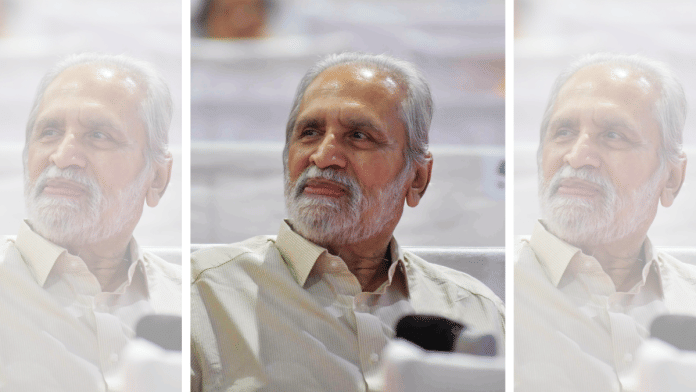New Delhi: Fifteen years after the Commonwealth Games (CWG) “scam”, a special court in Delhi has accepted a closure report filed by the Enforcement Directorate (ED) in a money laundering case against former chairman of the games organising committee and Congress leader Suresh Kalmadi.
The Central Bureau of Investigation (CBI) had filed a closure report in the same allegations against Kalmadi and others in January 2014.
The allegations pertained to the award of two contracts for the CWG, related to Games Workforce Service (GWS) and Games Planning, Project & Risk Management Services (GPPRMS).
The ED’s closure report asserted that there was no offence under the Prevention of Money Laundering Act (PMLA), “due to absence of proceeds of crime”. This, it said, was because no “scheduled offence” had been committed by the accused.
The economic intelligence agency files a complaint under the PMLA to probe allegations of money-laundering of proceeds of crime. These proceeds have to be linked to a separate criminal offence allegedly committed by the person based on which the ED files its independent complaint.
The PMLA, in turn, lists down these separate offences and laws in its Schedule, and these are called scheduled offences or predicate offences. In simpler words, therefore, at least two cases run parallelly usually—one under a scheduled offence, and another under PMLA, for money laundering.
In this case, the original CBI case was already closed in 2016, after the CBI filed a closure report in 2014. Accepting the closure report, the court’s 2016 order had said, “During investigation allegations were not substantiated and standard procedure was adopted to ensure quality service involving technical specifications and looking into limited number of service providers in the world which could provide expertise services for such type of games having international repute for giving successful games in India within limited time frame.”
However, the ED case was closed only through an order passed by Special judge Sanjeev Aggarwal on Monday. The order, seen by ThePrint, asserts, “…as no offence u/S. 3 of the PMLA, 2002 has been made out or has been committed, despite discreet investigations by the ED, therefore, there is no reason to continue with the present ECIR, as a consequence, the closure report filed by the ED stands accepted.”
The Games were hosted in Delhi from 3 to 14 October 2010. A Comptroller and Auditor General of India (CAG) report from the time alleged that government procedures had not been adhered to meet the delay in the timelines. This had led to the registration of several FIRs by the CBI at the time.
Also Read: 19 FIRs, 15 yrs, zero accountability—unresolved saga of CWG ‘scam’ that changed Delhi & its politics
The allegations
The ED case was filed on the basis of a CBI FIR registered in August 2012, against Kalmadi, CWG chief operating officer V.K.Gautam, CWG treasurer A.K.Mattoo, secretary general of the Games Organising Committee Lalit Bhanot, CEO of Event Knowledge Service (EKS) Switzerland Craig Gordon Melatchey, and other unknown persons.
The case involved allegations of misconduct in awarding and execution of two important work contracts for the event—the Games Workforce Service (GWS) and Games Planning, Project & Risk Management Services (GPPRMS). It was alleged that members of the Games organising committee caused “undue pecuniary gain” to the consortium of EKS and Ernst and Young (E&Y) by awarding them the two contracts, causing a loss of Rs 30 crore to the organising committee.
EKS was awarded two short term contracts for GWS and GPPRMS at the initiative of Mattoo, as approved by Kalmadi, for a period from March 2007 to June 2007.
Allegations of favours extended to EKS by the organising panel emerged, after which the CBI registered an FIR in 2012. The ED also initiated a probe on the basis of a case registered in 2013.
But, less than two years later, the CBI filed a closure report in January 2014, pointing to the lack of incriminating evidence during the investigation. This closure report was accepted by a special judge at Patiala House Court in February 2016.
The ED’s closure report said that its findings of the money laundering investigation were also in line with that of the CBI.
(Edited by Tony Rai)
Also Read: Just 8% of country’s police officers are women, 12% in IPS, finds India Justice Report 2025






